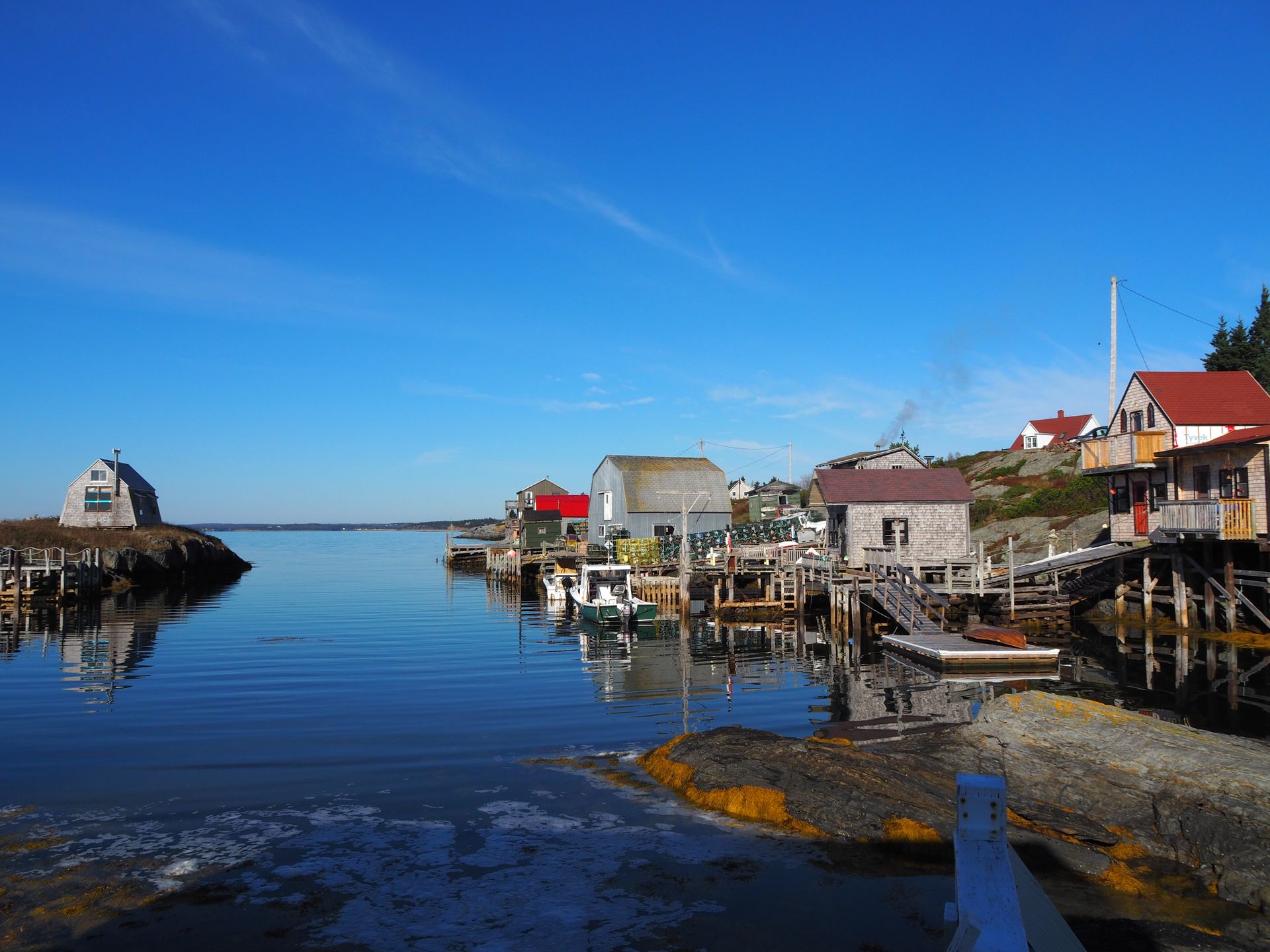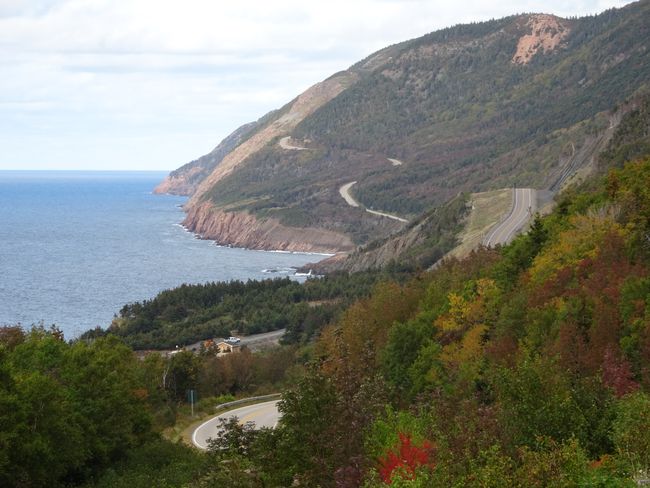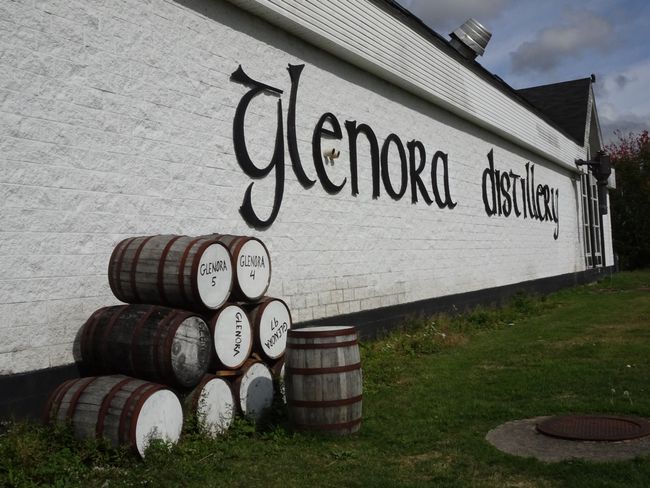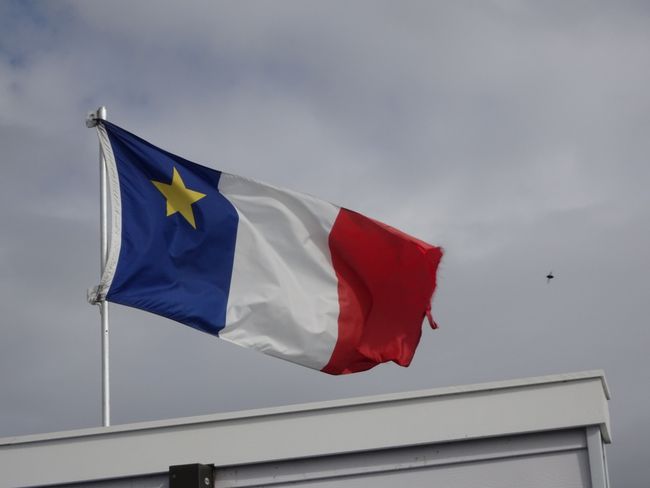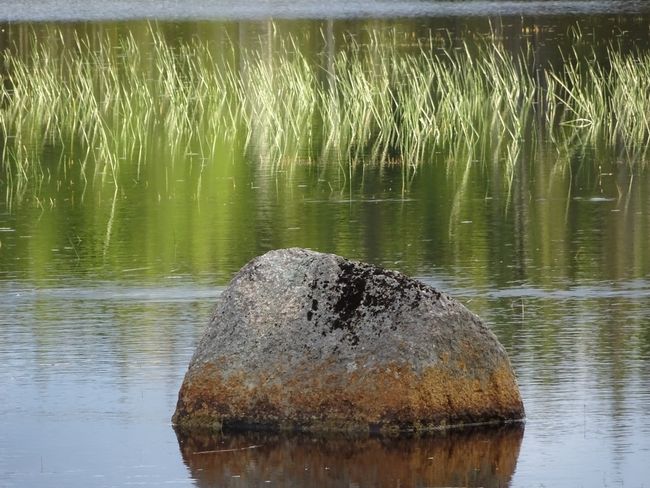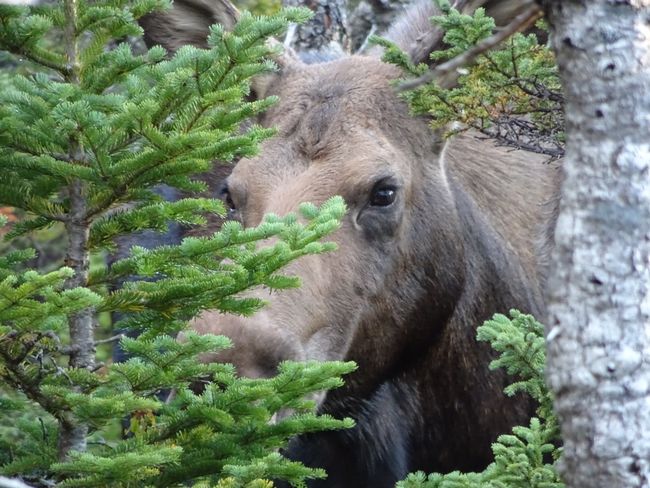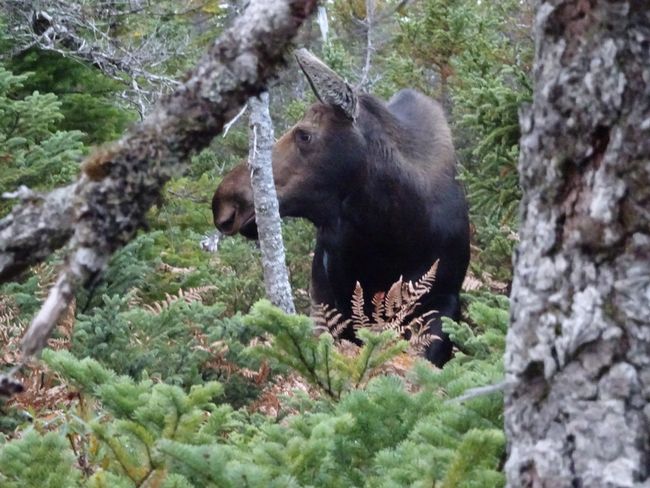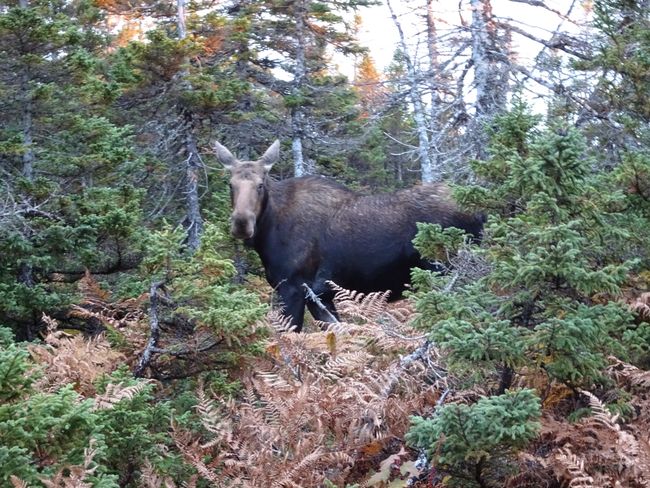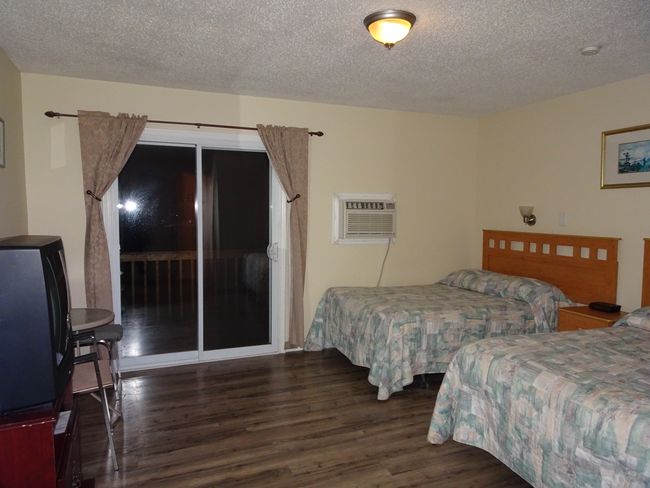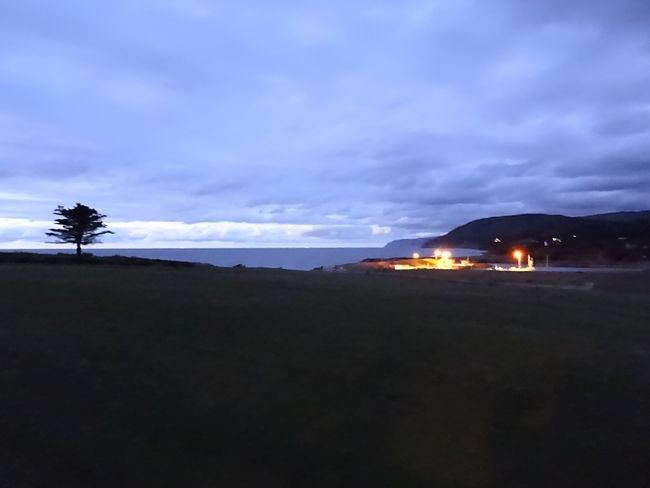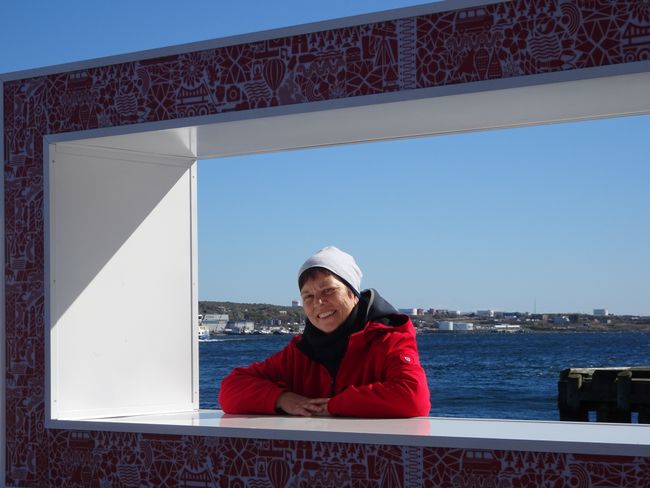
Bunter Herbst im Osten Kanadas
vakantio.de/bunterherbstinkanada
1.10.18 Antigonish-Cabot Trail to Pleasant Bay
Tihchhuah a ni: 20.10.2018
Newsletter hi subscribe ve rawh
Breakfast is at Tim Hortons before we head to Cape Breton, the island where the 311km long Cabot Trail leads, one of the most beautiful coastal roads in the world - especially in autumn when the leaves change color. The northern part of Cape Breton is a national park and it is home to hundreds of moose and bears, lynxes and other animals. Accommodation options here are limited and we booked a (affordable) hotel in Pleasant Bay months ago. The town is located on the northern west coast of Cape Breton and we have a fairly long distance of almost 300km ahead of us today. We intentionally want to drive a few loops and enjoy the views - weather permitting.
We stop by the Visitor Center directly in Port Hastings to get some information, although there isn't really much. So our route will take us almost around Cape Breton - we will drive the entire Cabot Trail plus a few loops except for a few kilometers. Today we are heading north along the west coast. Tomorrow we will cross Cape Breton from west to east and the day after tomorrow we will drive south along the east coast.
Opinions are divided on which direction is better. We have decided like this and start on Highway 19, the so-called Ceilidh Trail (pronounced: Kay-lee). Ceilidh as a term is actually of Scottish-Irish origin and Cape Breton is influenced by this culture as well as by France (Acadians). It stands for a friendly gathering but also for music. The first stop is in Glenville, the Glenora Distillery, which produces 'Scottish' whiskey. A tour has just ended, but it is not worth waiting for the next one. So we continue.
We have fantastic views of the coast and the winding road along the cliffs. Also, partly dramatic dark clouds with windy 13°C, which is only bearable with 2 jackets and a hat, and we are grateful for the seat heating in the car. Great photo opportunities.
There is supposed to be a great bakery in Cheticamp that bakes their products themselves. So we must not miss that. The parking lot of this little place is huge, but we only count 3 cars. In the bakery, on the radio and in the small Visitor Center that doesn't have any enlightening information, everyone speaks a French gibberish - Acadian. The flag here is not Canadian but French with a yellow star - the flag of the Acadians. We get a coffee and a scone, which is completely tasteless. The calories could have been saved, but it is already 3:30 pm and we were getting hungry. We soon reach the entrance to the national park area. It costs $7.80 per person and it is valid until 4 pm the following day.
Now we want to see animals - preferably moose. A couple tells us at a parking lot that they have seen some near the next parking lot on the trail to Burnie's Lake. We set off and hike under a cloudy sky with scarf, hat, and gloves to Burnie's Lake - without seeing any moose. But when we want to go back at 5:00 pm, the evening sun breaks through the clouds and presents breathtaking impressions of the mirror-smooth lake. We walk back to the parking lot and about 100m before the road, we hear grunting to our left.
We stop immediately and see a moose cow about 30m away, enjoying and loudly eating the branches in the fir trees. Another 20m ahead, another moose cow appears, and a bull can be made out further back in the trees only by its antlers. One of the moose cows moves closer and closer to our trail. We stand there rooted to the spot and take photos with minimal movement. Eventually, one of the moose cows is at best only 10m away from us and suddenly tramples in our direction. Oops - that's quite scary because these animals are really huge. We know that moose have extremely poor eyesight but a good sense of smell. We hardly moved and there is also the question: Should we now go quickly to the parking lot or would that provoke trouble? With such a huge animal, you really don't want direct contact. The sun is slowly setting and after a while, we start the controlled retreat and sit in the car, pretty frozen, to cover the last kilometers back to Pleasant Bay. There is an endless construction site in front of the town with a follow-me car, which means that we only check in at the Midtrail Motel at 7:30 pm in complete darkness. By now it's 9°C, and despite the seat heating in the last 30 minutes, we didn't really get warm from our time at Burnie's Lake and with the moose.
The room is freezing cold, has a balcony overlooking Pleasant Bay, which is now in complete darkness, of course. The Midtrail Motel is extremely basic. There is a piece of cardboard as a doormat, the beds have thin blankets, there is no heater, only an air conditioner that is loud and blows a lot of dirt into the room when you set it to 'warm', but does not give off warm air. There is no hairdryer.
We find the only open restaurant a few hundred meters away, the 'Rusty Anchor'. A quaint place with typical food like burgers with fries but also fish. I order grilled salmon, which tastes really delicious. Since the restaurant closes at 8 pm, they serve and eat quickly. We are already in the hotel at 8:30 pm and try to warm up somehow. I lie in bed with a long-sleeved t-shirt, a fleece sweater, jogging pants, and wool socks. The quilt is at best suitable for summer and I wrap the small fleece blanket I brought with me from the plane around my head, but the synthetic bedspread doesn't warm at all. The night is extremely cold and sleep was only possible with long interruptions. I tried not to move at all to avoid losing the little warmth on the mattress.
Newsletter hi subscribe ve rawh
Chhanna
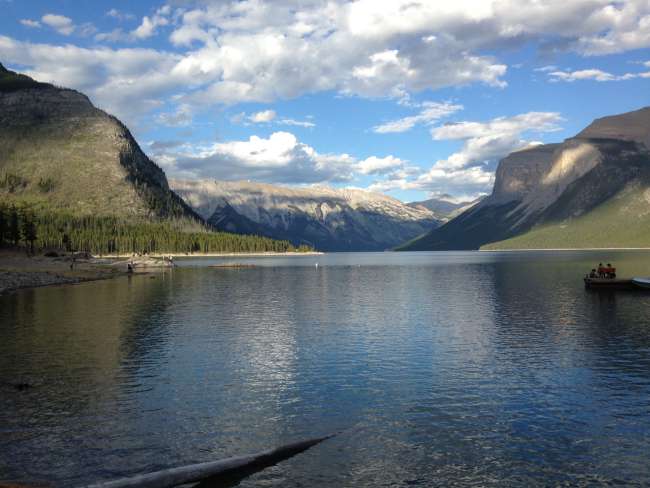
Khualzin report Canada ram a ni
